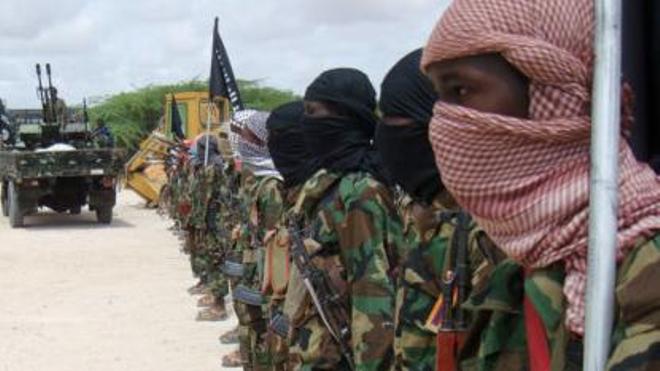
Sunday November 19, 2017
Johannesburg - The Pentagon has announced that there are now "more than" 500 US troops on the ground in Somalia, Fox news reports
This is a significant increase from early 2014 when roughly two dozen troops arrived for the first time since 1993. The US Africa Command says there have been 28 airstrikes this year, mostly from drones, against al-Shabaab, long considered the greatest terror threat in Africa.
However, the militants continue to carry out devastating attacks against civilian, military, and government targets in both the Somali capital Mogadishu and the countryside, culminating in the deadly truck bombing attack on October 14 which killed over 300 people.
The attack prompted Somali President Mohamed Abdullahi Mohamed to declare an all-out military assault on the group after canvassing the region for support.
But questions remain as to whether the military approach alone will be successful in the long-run in thwarting al-Shabaab.
Somali military forces, backed by African Union Mission in Somalia (Amisom) forces, had succeeded by 2014 in driving the jihadists out of the capital and swathes of the countryside, leaving al-Shabaab in control of only parts of the rural areas.
Hussein Moalim, a former national security adviser to the Somali president, attributed the group’s renewed successes to a political schism between the federal government and regional powers, a divide in the intelligence services, and al-Shabaab using increasingly sophisticated home-made explosives.
According to a new UN report FBI laboratory analyses show that the insurgents are now using an ingredient in fertiliser to make vehicle-borne bombs which are easier to assemble than harvesting explosives from munitions, which is slow and laborious.
Al-Shabaab has also been able to improve its military capabilities by capturing heavy weaponry following attacks on Amisom and Kenyan forces bases.
All of this makes the need for a military victory over the extremists essential, especially in light of the scheduled withdrawal of all Amisom troops by 2020.
However, Omar Mahmood, a researcher at the Institute for Security Studies (ISS) in Addis Ababa, and Gustavo de Carvalho, a senior researcher at the ISS in Pretoria, argue that al-Shabaab is more a symptom of the conditions conducive to the conflict in Somalia rather than the cause.
“At its core, al-Shabaab has thrived because of deep-rooted structural factors,” the researchers stated in a recent ISS article.
“These include the constant divisions among political actors, and the challenge of extending government presence in rural areas after decades of state collapse, all the more pertinent given the need to compete with the services provided by al-Shabaab itself,” stated the article.
A military reactive response by the Somali government against the group limits the scope to deal proactively with complex longer-term causes of terrorism, the researchers explained.
And the failure to show leadership could turn the public against Somalia’s leaders, rather than al-Shabaab.
“The outpouring of anti-al-Shabaab sentiment after the October attack indicates that the Somali public has already made its feelings known; Somali leadership should set aside their squabbles and unify around this objective,” wrote Mahmood and de Carvalho.
“A failure to do so could mean that in the future the public’s wrath is directed more towards the country’s leaders than al-Shabaab.”
According to the authors, genuine local conflict prevention efforts should include a greater focus on clan reconciliation, especially among minority clans.
“The grievances of potential spoilers left out by Somalia’s incipient federalisation system need to be addressed, to ensure al-Shabaab doesn’t target aggrieved parties for recruitment,” they added.
International actors, including the UN and the AU should also ensure that local partners are part of the effort to deal with the conflict’s root causes, including the pervasive lack of governance.